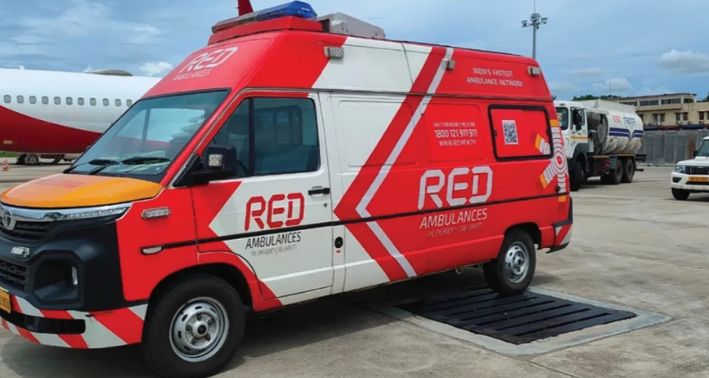
In a country as vast and diverse as India, timely access to emergency medical services can be the difference between life and death. One of the most crucial components of this emergency care infrastructure is the 24-hour ICU ambulance service. These advanced mobile units provide critical care support during transport, ensuring patients receive continuous medical attention while being moved to a hospital. With the rising demand for emergency services and a growing focus on patient outcomes, 24×7 ICU ambulance services are becoming increasingly vital across India.
What Is a 24-Hour ICU Ambulance Service?
A 24-hour ICU ambulance is a specialized vehicle equipped with life-saving medical equipment and staffed by trained healthcare professionals. Unlike basic ambulances that offer only transportation, ICU ambulances are mobile intensive care units. They carry critical care tools like ventilators, defibrillators, infusion pumps, and advanced cardiac monitors. These vehicles are capable of stabilizing and managing patients with severe medical conditions such as cardiac arrest, traumatic injuries, respiratory failure, and more.
These ambulances operate round the clock, allowing healthcare systems to offer uninterrupted support to patients during emergencies, inter-hospital transfers, and long-distance transportation across cities or states.
Why 24-Hour Ambulance Services Matter in India
India’s diverse geography and population density pose significant challenges to emergency healthcare delivery. Traffic congestion in metro cities, limited access in rural areas, and gaps in hospital infrastructure make fast, reliable medical transportation a necessity.
Key reasons 24-hour ambulance services are critical:
-
Time-Sensitive Emergencies
Conditions like stroke, heart attack, and severe trauma require immediate medical attention. 24-hour ambulance services help reduce the golden hour delay by reaching patients quickly, initiating care en route, and improving chances of survival. -
Inter-Facility Transfers
Not all hospitals are equipped with advanced critical care units. ICU ambulances facilitate safe transfer of critically ill patients from smaller facilities to tertiary hospitals. -
Remote Area Access
In rural and remote parts of India, ICU ambulances bridge the gap between the patient’s location and critical care facilities, providing life support during long-distance travel. -
Medical Support on the Go
With trained paramedics, emergency physicians, and intensivists on board, patients are continuously monitored and treated during transport, minimizing deterioration.
Technological Advancements in Ambulance Services
India’s emergency medical services are evolving rapidly. Modern ICU ambulances are being equipped with:
-
GPS tracking and real-time navigation for faster response
-
Telemedicine units to connect with specialists remotely
-
Smart monitoring devices for real-time vitals tracking
-
Cloud-based medical record systems for seamless handover at hospitals
These innovations ensure patients receive better coordinated, efficient, and timely care.
Types of ICU Ambulances Available in India
India’s ambulance services have diversified to meet different patient needs. Common types include:
-
Basic Life Support (BLS) Ambulances – Provide basic care like oxygen support, first aid, and transport for non-critical patients.
-
Advanced Life Support (ALS) Ambulances – Feature advanced equipment like defibrillators and ECG monitors, and are suitable for high-risk patients.
-
ICU Ambulances – Designed for critical patients needing constant medical supervision, these come with ventilators, multiple IV channels, and ICU-grade support systems.
-
Neonatal/Pediatric ICU Ambulances – Specially equipped for infants and children requiring emergency medical care during transit.
Choosing the Right ICU Ambulance Service
When selecting a 24-hour ambulance service in India, consider the following:
-
Response Time: Speed is crucial in emergencies. Check if the service offers fast dispatch and optimized routing.
-
Trained Staff: Ensure that the ambulance team includes certified paramedics and emergency medical technicians (EMTs).
-
Equipment: Confirm the availability of necessary life-saving devices, particularly if the patient is on ventilator support or needs cardiac monitoring.
-
Service Coverage: Opt for providers who offer intercity and interstate transfers if needed.
-
Accreditation: Choose services accredited by health authorities for quality and compliance.
Prominent ICU Ambulance Service Providers in India
Several reputed organizations are offering 24-hour ICU ambulance services across India. These include:
-
RED.health
-
Ziqitza Health Care Ltd
-
GVK EMRI (Emergency Management and Research Institute)
-
StanPlus
-
Medulance
These providers are known for their trained staff, quality ambulances, and reliable emergency response networks.
Future of ICU Ambulance Services in India
The future of emergency medical transportation in India looks promising. Government policies such as Ayushman Bharat, public-private partnerships, and health-tech startups are expanding access and innovation in ambulance services. Upcoming trends include:
-
Integration with 5G for real-time telemedicine
-
AI-based dispatch systems for route optimization
-
Air and train ambulances for long-distance transfers
-
Custom ambulances for pandemic preparedness and disaster response
Conclusion
The availability of 24-hour ambulance services is transforming emergency healthcare delivery in India. By offering advanced medical support on wheels, these services reduce mortality, ensure timely hospital access, and support critical care on the move. As India continues to invest in healthcare infrastructure and technology, ICU ambulances will remain an indispensable part of saving lives during emergencies—day or night. Whether you’re in a metro city or a rural village, having access to a reliable ICU ambulance could be the lifeline you or a loved one needs in a medical crisis.
For those seeking reliable, nationwide ICU ambulance services, RED.health stands out as a provider committed to quick response times, expert staff, and comprehensive care during transport.





